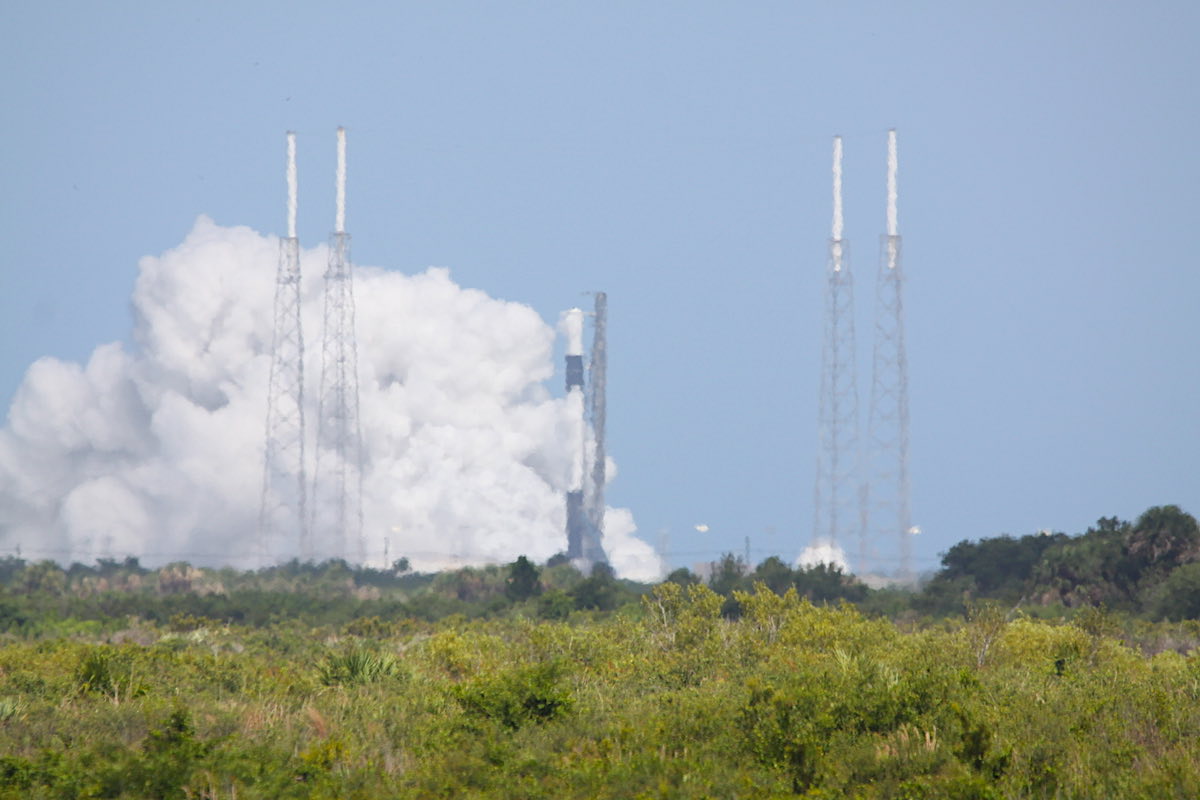
SpaceX said Thursday it has postponed the next launch of a Falcon 9 rocket, previously scheduled for Friday at Cape Canaveral, due to unspecified technical concerns. The Falcon 9 will launch on a commercial rideshare mission with more than 80 small satellites.
In a tweet, SpaceX said its team would take “additional time for pre-launch check outs.” The company released no additional details, but added it will announce a new target launch date once it is confirmed.
Two customers with satellites on the mission said Monday was a tentative new target launch date for the mission, which SpaceX calls Transporter 2.
The Transporter 2 mission is SpaceX’s second dedicated small satellite rideshare mission, following the launch of the Transporter 1 mission in January. The Transporter 1 mission delivered 143 small satellites to a sun-synchronous polar orbit, while Transporter 2 is expected to carry around 88 spacecraft into a similar orbit.
The payloads include small satellites for the U.S. military, plus radar and optical Earth observation satellites for Satellogic and ICEYE, commercial remote sensing companies based in Argentina and Finland. There are also numerous CubeSats on-board the launch for U.S. and international operators.
The launch was scheduled for 2:56 p.m. EDT (1856 GMT) Friday from pad 40 at Cape Canaveral Space Force Station, Florida.
SpaceX test-fired the Falcon 9 rocket’s reused first stage booster on pad 40 Tuesday. After the static fire test, SpaceX confirmed the mission was on track for launch Friday.
After liftoff, the Falcon 9 rocket will head south east from Cape Canaveral, then turn to a southerly course after arcing downrange over the Atlantic Ocean. The “dog-leg” maneuver will take the Falcon 9 rocket offshore on a trajectory roughly parallel to Florida’s east coast, then over the Florida Straits and Cuba before reaching orbit what the rideshare payloads.
This will be the third SpaceX launch to use the southerly polar launch trajectory since last August. Before August, the polar launch trajectory had not been used from Cape Canaveral since 1969.
SpaceX plans to land the first stage of the Falcon 9 rocket back at Cape Canaveral around eight minutes after liftoff, while the rocket’s upper stage continues into orbit to deploy the dozens of small satellites on-board.
The Transporter 2 mission will mark SpaceX’s 20th Falcon 9 launch of the year.
Email the author.
Follow Stephen Clark on Twitter: @StephenClark1.
